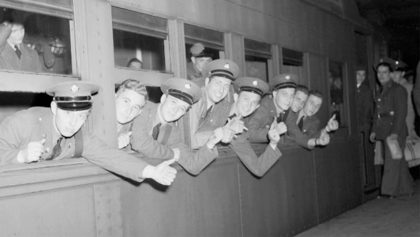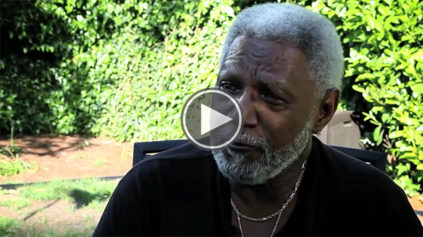A popular maxim attributed to 18th-century statesman and philosopher Edmund Burke warns, “Those who don’t know history are destined to repeat it.” It is an adage both empirical and intuitive, one justified as much by cyclical wars and the rise and fall of civilizations as by our own human tendencies as “creatures of habit.” Though acknowledging history as a naturally repetitive process, the saying instills hope for the alteration of human events, if not their wholesale disruption, through an increased knowledge of the past and the valuable lessons it has to offer.
Given America’s current turmoil, some feel such a critical study of history is an effective way to both navigate and forge the road ahead.
“If the United States were to come to grips with the true nature of its history, it might curb the alienation and disillusionment that is now ricocheting through the Black community in particular and through fair-minded communities in general,” says Gerald Horne, the John J. and Rebecca Moores Chair of History and African American Studies at the University of Houston. Horne is author of over 30 books, including the upcoming “Facing the Rising Sun: African Americans, Japan and the Rise of Afro-Asian Solidarity.”
Keep in mind, Horne says, America began as a slaveholder’s republic under the cause of “white supremacy. But under unrelenting pressure from below by Africans, and from the international community, the United States had to retreat reluctantly and agonizingly from that national credo and its slaveholding status.” Then, continues Horne, “it invented this national myth that the constitution, which was designed to entrench slavery and white supremacy forevermore, was somehow flexible enough to encompass the rest of us. This, apparently, is not the case as the exoneration of police officers who kill us on a regular basis tends to show,” as it produces a disconnect between the official stated policy of nondiscrimination and “what’s actually happening to Black people in the streets.”
Consistently, the disconnect between America’s citizens and its history is just as large. Several surveys conducted over the past decade by the American Council of Trustees and Alumni (ACTA) depict a citizenry largely unaware of its eventful past. A 2012 ACTA survey found that less than 20 percent of college graduates could identify the effect of the Emancipation Proclamation. A 2015 survey revealed more than one-third could not place the Civil War within the correct 20-year time frame.
Such widespread historical ignorance is problematic for a nation currently grappling with deeply entrenched issues of economics, power and race. Or as iconic African-American historian John Hope Franklin once put it, “If the house is to be set in order, one cannot begin with the present, he must begin with the past.”
The redemptive qualities of historical knowledge are well established. Just as a toddler reaches toward a hot stove and learns not to do it again, adults, groups and societies also learn valuable and painful lessons that improve their paths forward. Two of the 20th century’s most impactful Black leaders, Marcus Garvey and Martin Luther King Jr., relied heavily upon their historical knowledge in forging social movements that affected the course of American history. The civil rights and Black Power movements of the same century were steeped in the events and lessons of previous generations as well.
However, suggests Horne, this valuable learning process is commonly undermined by the false historical narratives countries adopt to advance a profit-driven, nationalistic or patriotic agenda. Prior to the American Revolution, he explains, certain actions by the British crown served as a threat to colonial land speculators like George Washington making a killing both literally and financially by violently taking the land of Native Americans and profiting from the free labor of enslaved Africans. “In 1763, London issued a royal proclamation which sought to restrain the ability of settlers in North America to continue moving west, dispossessing Native Americans and taking their land so land speculators could profit,” Horne says. “Rather than accede to that decision— and also to the decision of 1772 where London had abolished slavery and there was a fear that decision would cross the Atlantic — you had the slaveholders rebel.”
Though that’s what actually happened, continues Horne, “instead, we are given this fairy tale about liberty and freedom” and, increasingly, “people are not accepting this fairy tale because in their daily lives they wonder why and how Black people are still being mistreated, still disproportionately on death row, still disproportionately incarcerated, and why Black preschoolers are disproportionately disciplined. And it has everything to do with the founding of this country and the fact that Black people in particular did not seek freedom fighting alongside their slave masters, they sought freedom fighting against their slave masters.”
Ultimately, inaccurate or propaganda-driven historical narratives build mistrust among the very citizens a country then demands allegiance, unity or service from in times of crisis. Horne believes it is a losing formula for any nation attempting to steady its course and chart a smoother, more constructive path forward.
“With a true and accurate portrayal of what actually has happened in North America, not only the mass enslavement of Africans but the massive dispossession of Native Americans, there might be a populous much more willing to sacrifice and fight for this country,” Horne contends.
As it is, he adds, “Why should people sacrifice and fight for a country that’s lying to them on a regular basis?”

